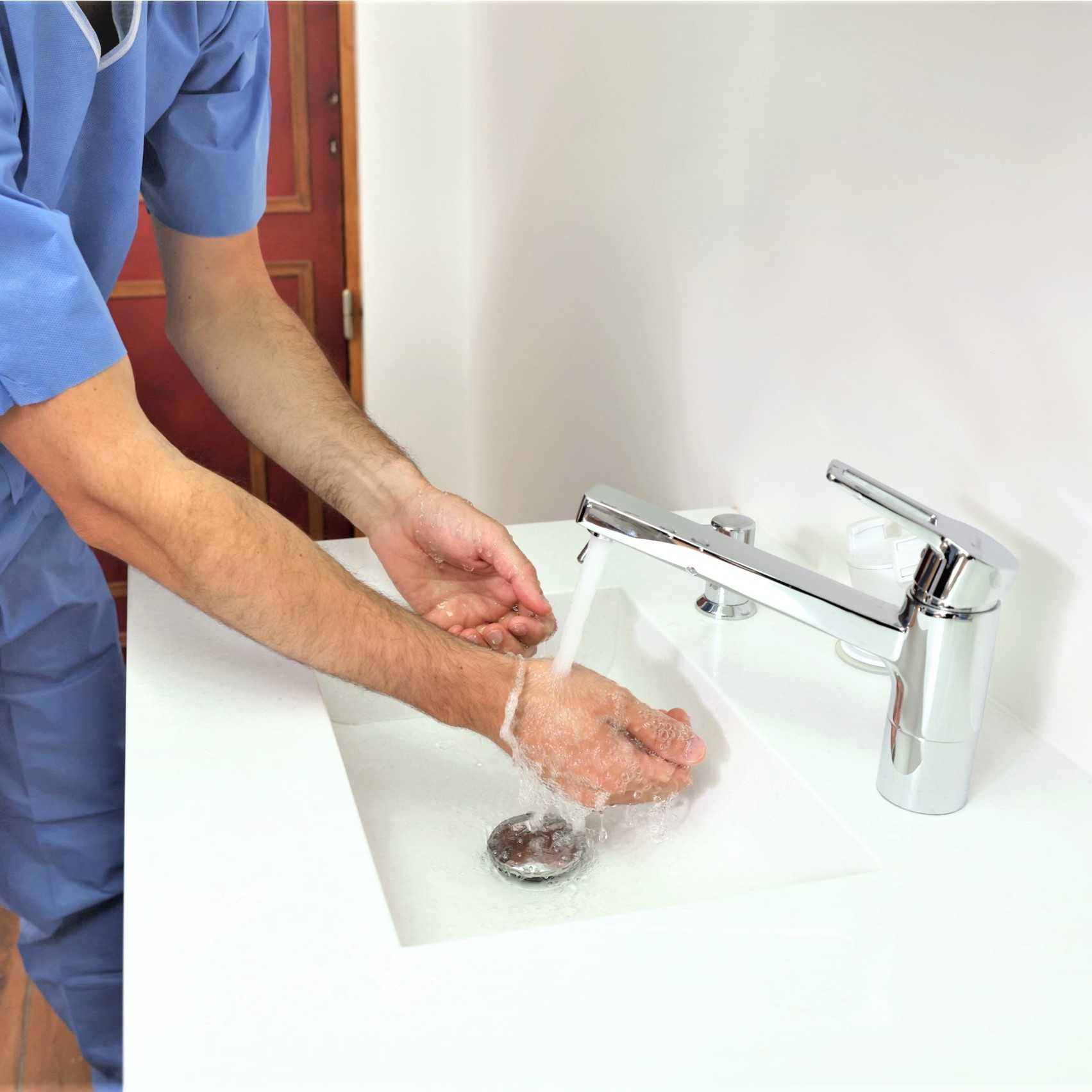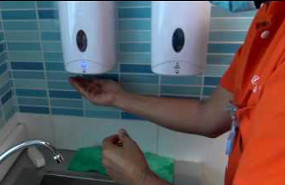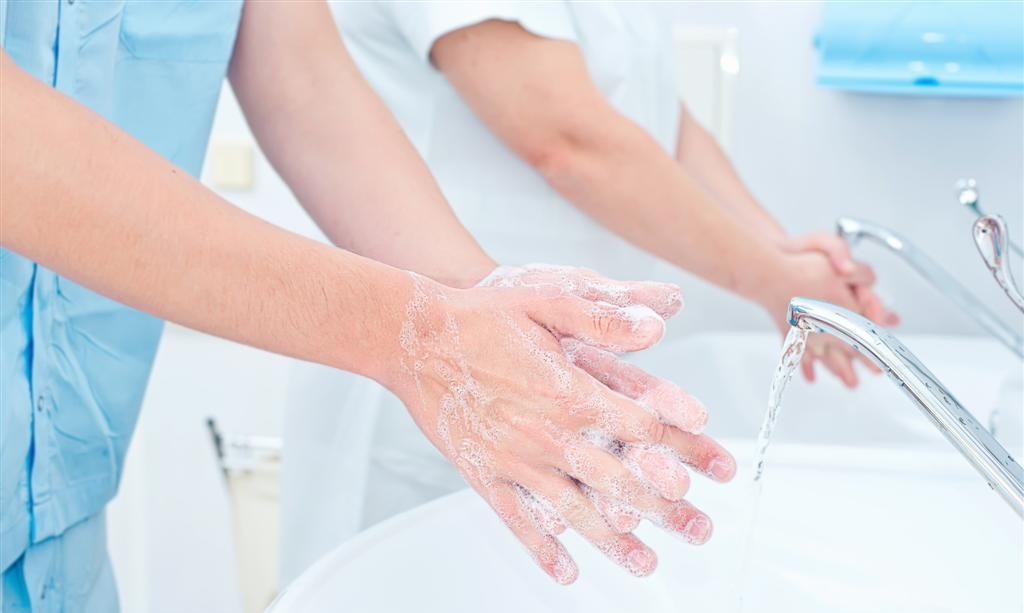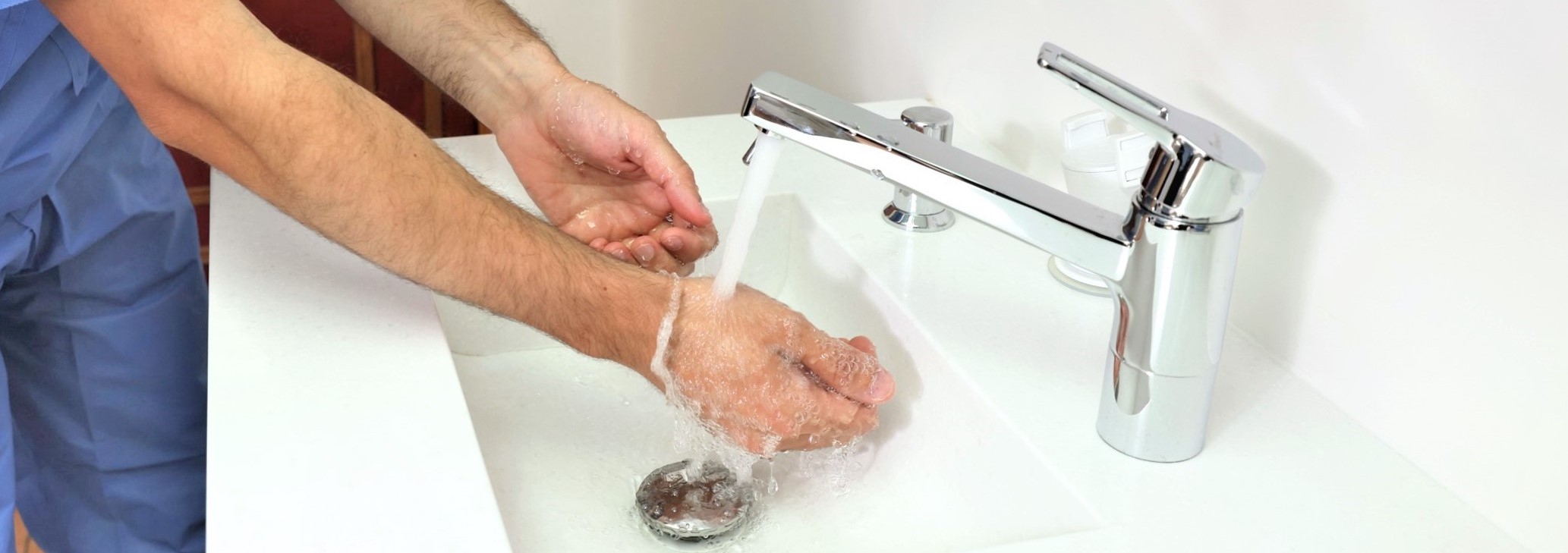
Hand washing is essential in the dental practice. So much so that we often forget that it should be adapted to the situation and the procedure planned. Let’s take a moment to look at the care of your first work instruments.
Hands for dental care
The hands of dentists and dental assistants are subject to the same rules.
- Jewellery must be removed (rings, watches, bracelets, etc.)
- Nails must be short and unpolished
- False nails are forbidden
- Your blouse should preferably have short sleeves above the elbows to keep your hands and forearms clear.
Although in the past, wedding rings have often been tolerated, recent research has closed the debate on the subject even a visibly smooth ring has microporosities that can be receptacles for bacteria. This precious ring should therefore be removed during your working day at the dental surgery.
Simple Hand Washing
Hand washing should be an integral part of the health care team’s preparation before starting the day’s care. Remember to wash your hands when you arrive at the practice before changing into your gown.
Why? To remove transient germs from the hands.
When? On arrival and before leaving the dental surgery. When leaving the toilet, after blowing your nose. Before meals and, of course, before every treatment.
How? For 1 minute, use a mild soap and water to lather your hands, wrists and forearms. Rinse thoroughly to remove all traces of foam from the skin. Then dry your hands by dabbing a single-use towel over your skin. Once dry, use the towel to turn off the tap if it is not automatic. You can now put on your examination gloves.
Surgical hand washing
Some hospital treatments require an intermediate antiseptic wash called a hygienic wash. Here we will deal directly with a surgical scrub. This type of procedure will be performed before surgical procedures in the dental practice such as extractions, periodontology or dental implants.
Why? The aim of a surgical scrub is to remove transient germs and significantly reduce resident germs.
When? The surgical scrub is done before any surgery or invasive procedure.
How? Use bactericidal soap to work up a lather on your wet hands, keeping your hands above the elbows. Rub your hands with a single-use brush from the tips of your nails to your arms. Do not forget the elbows. Then proceed to a first rinse before repeating the operation a second time. You should then dry your hands thoroughly with a sterile, non-woven, single-use towel. You should not touch anything with your hands other than the sterile gloves you are about to put on.
The right gestures
1. Application of soap to wet skin
2. Palm to palm
3. Friction palm to back of hand
4. Friction of intertwined fingers
5. Soaping the thumbs
6. Nail and joint friction
7. Wrist friction
8. Soaping up to the elbow
9. Rinse with clean water
10. Dabbing dry
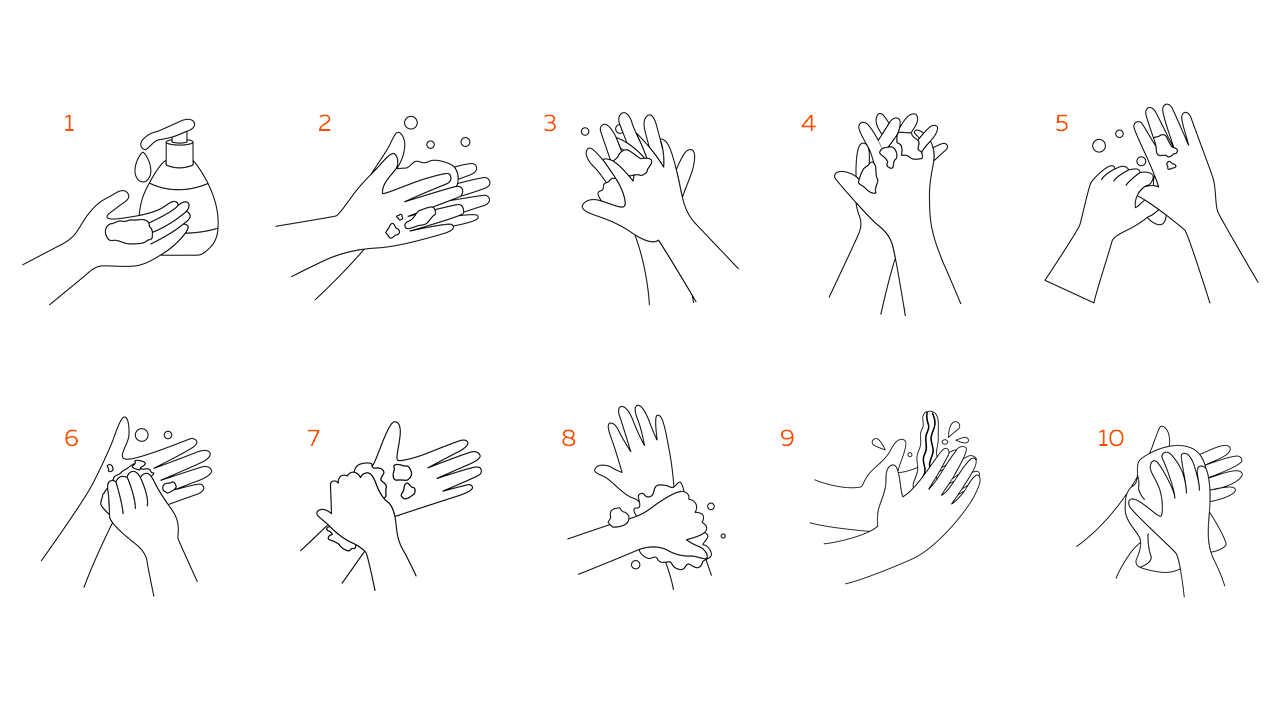
Rubbing with hydro-alcoholic solution
The Petri dish test shows the reduction of transient flora in a simple wash and its inaction on resident flora. Consequently, the wearing of non-sterile latex gloves results in bacterial proliferation after 45 minutes.
Rubbing with a hydro-alcoholic solution (H.A.S.) immediately after hand washing eliminates the transient flora and the microbial flora. Its residual effect prevents microbial growth after 45 minutes of wearing sterile gloves.
It is therefore recommended that a surgical wash be completed by a rubbing with S.H.A. before putting on sterile gloves.
In summary, hand hygiene is the first guarantee of the preservation of sterility during your dental care and surgery. Meticulous hand cleaning is essential throughout your working day, but do not forget to take care of your most important working instruments. Applying moisturising cream twice a day will keep the skin on your hands healthy and in good condition, so it can better withstand repeated washing and disinfection, and the friction from gloves.

Mrs. Jo-Han-Green PAYET
EVOLYOU
- Certified trainer
- Training manager at Evolyou
- Dental office assistant for 15 years: prosthesis, implantology, periodontology
- Tutor of trainee assistants
- Head of operating room Evolyou
- Product trainer Lyra Etk

